Despite living in an era where we’re more connected than ever, it’s paradoxical that many of us feel a profound sense of social disconnection. The digital age has indeed brought us closer in a virtual sense, but it has also erected barriers that prevent genuine face-to-face interactions. Feelings of loneliness and isolation are becoming increasingly common, affecting our mental and physical health.
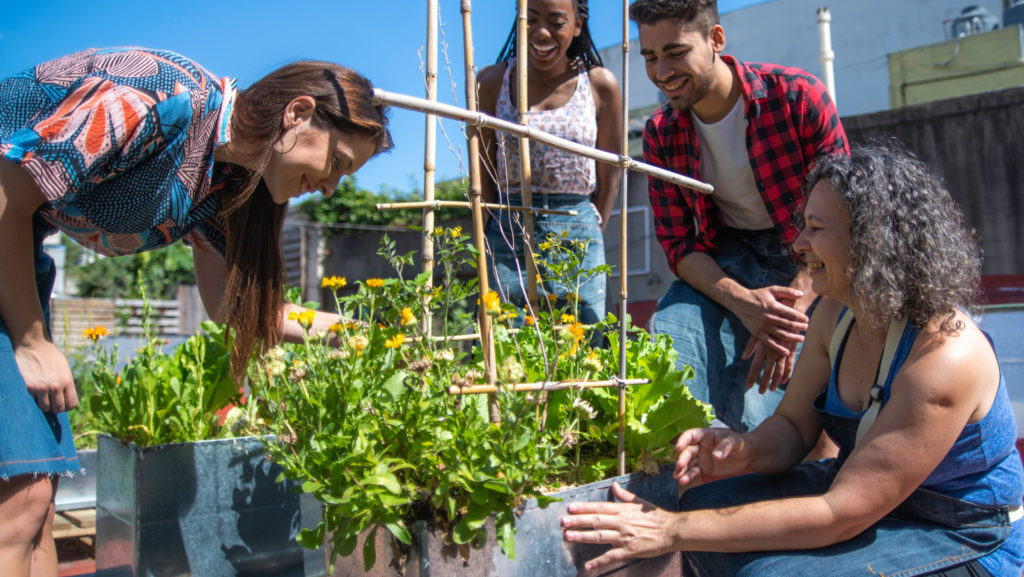
But what if I told you there’s a vibrant, green solution just outside your doorstep? Welcome to the world of gardening—a hobby that not only nurtures plants but also fosters friendships and enhances social bonds. In this blog post, we’ll journey through the enchanting world of cultivating friendships via gardening and reveal the multitude of benefits it offers for social health.
Gardening provides a unique pathway to form new relationships and deepen existing ones. Whether it’s working in a community garden, becoming a member of a gardening club, or simply sharing your gardening adventures with friends, the process of caring for plants and creating green spaces has an extraordinary capacity to unite people. In the upcoming sections, we’ll explore the potency of social connection, the function of gardening as a social pastime, and the ways gardening can nurture enduring friendships.
So, if you’re eager to sow new relationships, experience the delight of shared activities, and cultivate social bonds, continue reading. Get ready to dig up the secrets of growing friendships through the transformative magic of gardening.
The Power of Social Connection
In our rapidly advancing, tech-focused world, the need for social interaction has grown more than ever. As social beings, we are naturally drawn to interaction and companionship. However, in the fast-paced rhythm of today’s life, real connections often get overlooked. The growing trend of social isolation and loneliness has deep implications for our mental and physical health.
Research has shown that ongoing loneliness can have a serious effect on our well-being, similar to the impacts of smoking or obesity. Feelings of isolation are linked with increased risks of depression, anxiety, heart diseases, and even a compromised immune system. It’s clear that cultivating meaningful social relationships is not just a nice-to-have, but a critical need for our overall health and happiness.
| Isolation | Social Interaction | |
|---|---|---|
| Mental Well-being | Increased feelings of loneliness, depression and anxiety | Improved mood and emotional well-being |
| Physical Health | Higher risk of cardiovascular diseases, weakened immune system | Enhanced immune system function |
| Emotional Support | Lack of support network, feeling misunderstood, and low self-esteem | Access to emotional support, sense of belonging |
| Cognitive Function | Cognitive decline and increase , risk of dementia | Enhanced cognitive abilities, improved memory and focus |
| Overall Well-being | Decreased overall well-being, higher levels of stress | Increased overall well-being, reduced stress |
So, how does gardening fit into this pursuit of social interaction? Let’s look into the amazing ways this green hobby can help us thrive socially.
Firstly, gardening offers a shared experience—a common platform where people can unite and bond over a mutual love for plants and nature. Whether you’re part of a community garden, an allotment, or just gardening with friends in your backyard, the act of caring for plants becomes a bonding force. It sparks conversations, exchanges of advice, and shared enthusiasm, building relationships that go beyond typical social boundaries.
Additionally, gardening is a joint effort. It promotes teamwork and cooperation, as people come together to plan, design, and maintain the garden space. Whether you’re participating in a community project or involving friends in your gardening activities, the process of working together towards a shared goal instills a sense of camaraderie and strengthens bonds. From sharing gardening tools to swapping advice, the cooperative nature of gardening creates opportunities for interaction and connection.
Gardening clubs, groups, and online communities also play a significant role in fostering social connections. These platforms bring like-minded individuals together, offering a space for knowledge exchange, problem-solving, and socializing. Whether you’re seeking gardening advice, looking for plant swaps, or simply sharing your gardening successes and challenges, these communities provide a supportive environment where friendships can sprout and grow.

Beyond the direct social benefits, gardening has a way of breaking down barriers and promoting inclusivity. Gardens can become spaces where social, cultural, and generational differences are bridged. In the garden, it’s not your background or age that matters; it’s your shared love for plants and the desire to create something beautiful. Gardening becomes a universal language, enabling people from diverse backgrounds to come together, learn from each other, and form lasting friendships.
Gardening can also be adapted to accommodate various physical abilities and disabilities, making it an inclusive activity. Accessible garden designs, adaptive tools, and raised beds allow individuals with limited mobility or disabilities to participate and connect with others through gardening. This inclusive aspect ensures that gardening remains a potential avenue for social connection for a wide range of individuals.
As we delve deeper into the world of gardening for social connection, it becomes clear that these green spaces offer more than just an opportunity to grow plants. They serve as catalysts for social interaction, platforms for community building, and spaces where friendships can flourish. In the next section, we’ll explore how gardens, besides fostering social connections, can also serve as gathering spaces for hosting memorable social events.
Gardening as a Social Activity
Gardening is not merely a solitary pursuit; it is inherently a social activity that brings people together in remarkable ways. The act of tending to plants and nurturing a green space creates a shared experience that forms the foundation for social connections to flourish.
The Shared Experience of Gardening
Gardening provides a unique opportunity for individuals to connect and bond over their love for plants and the natural world. Whether it’s cultivating a community garden, participating in an allotment, or simply engaging in gardening activities with friends in your backyard, the shared experience of gardening fosters a sense of belonging and camaraderie.
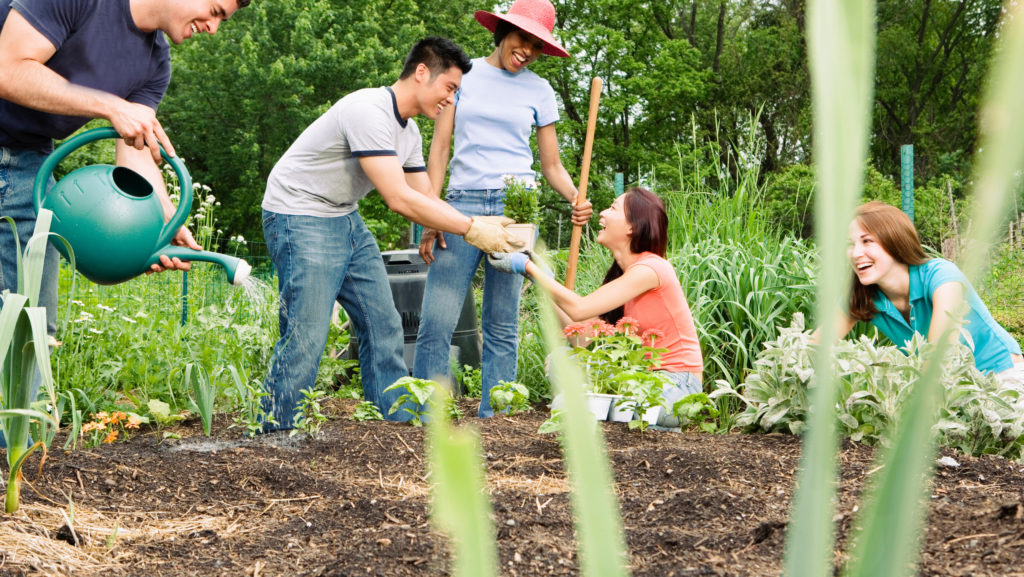
Gardening spaces, such as community gardens, allotments, and shared green areas, serve as meeting points for individuals with a common passion. These spaces bring people together, creating a sense of community and providing opportunities for social interaction. Gardeners can swap tips and tricks, offer advice, and share their successes and challenges, establishing connections based on a shared interest.
Gardening Clubs, Groups, and Online Communities
In addition to physical gardening spaces, various clubs, groups, and online communities dedicated to gardening play a significant role in nurturing social connections among enthusiasts. These communities offer platforms for like-minded individuals to come together, share experiences, and support one another.
Gardening clubs and groups provide opportunities for face-to-face interactions and often organize events, workshops, and outings related to gardening. These gatherings allow individuals to connect with fellow gardeners, learn from experienced practitioners, and form lasting friendships. By joining a gardening club or group, you gain access to a network of individuals who share your passion and can provide guidance, inspiration, and a sense of belonging.
Online communities have become valuable hubs for gardeners to connect globally. Whether through forums, social media groups, or specialized gardening platforms, digital spaces offer a convenient way to engage with fellow enthusiasts from diverse backgrounds. In these online communities, gardeners can seek advice, share their gardening journeys, and find support and encouragement. The power of technology connects individuals who may be geographically distant but united in their love for gardening, fostering friendships that transcend physical boundaries.
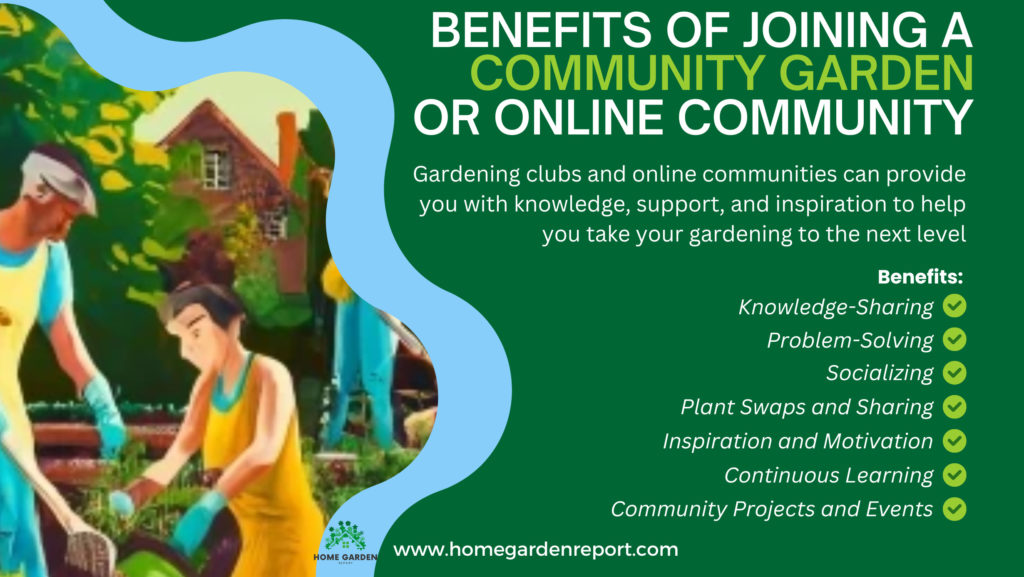
By engaging in gardening as a social activity, individuals not only connect with fellow enthusiasts but also tap into a vast pool of collective wisdom and experience. The exchange of ideas, information, and inspiration within gardening communities enriches the social aspect of this hobby, making it all the more rewarding.
Cultivating Friendships: How Gardening Fosters Social Connection
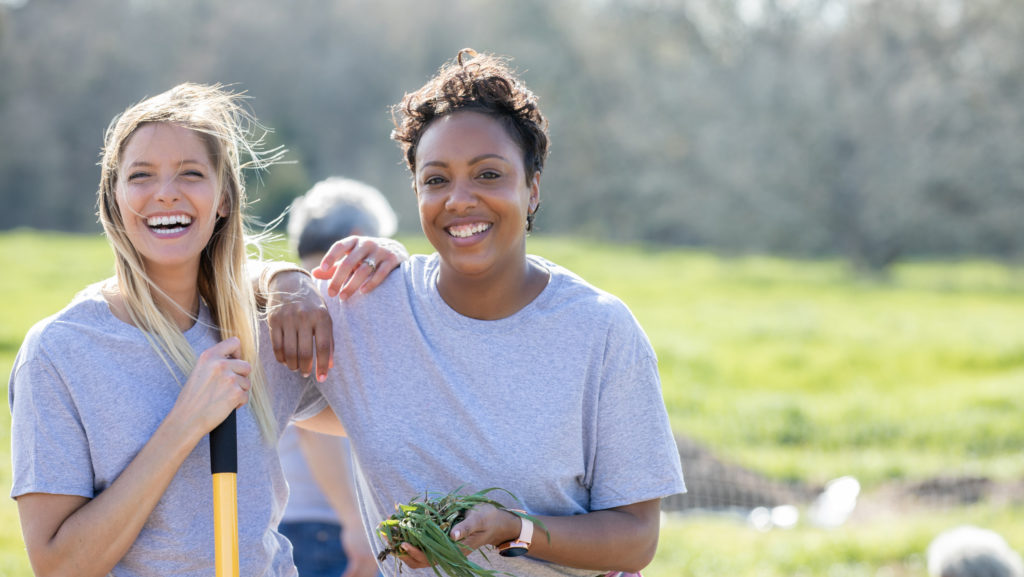
Gardening is not just a social hobby—it’s a potent tool for developing and nurturing friendships. The mutual passion for plants, the inherent teamwork in gardening, and the opportunities for interaction and conversation all play a role in creating lasting relationships among gardening enthusiasts.
Shared Interests and Goals
Gardeners often have shared interests and goals, which serve as a strong foundation for friendship. The zeal for growing plants, creating beautiful outdoor spaces, and connecting with nature provides a rich source of conversation and mutual understanding. These shared interests help form connections and create a sense of community among individuals who might not have met otherwise.
In addition, gardeners often encounter similar challenges and successes in their gardening journeys. Whether it’s fighting pests, trying new plant species, or dealing with unpredictable weather, these shared experiences and relatable difficulties offer numerous opportunities for empathy and support. These shared challenges and successes foster a sense of camaraderie and strengthen the bonds between gardeners.
The Collaborative Aspect of Gardening
Gardening is a joint venture that promotes teamwork and cooperation. When friends or community members come together to plan, design, and maintain a garden, they participate in a collective effort that goes beyond the individual. This collaboration not only enhances the gardening experience but also strengthens social bonds.
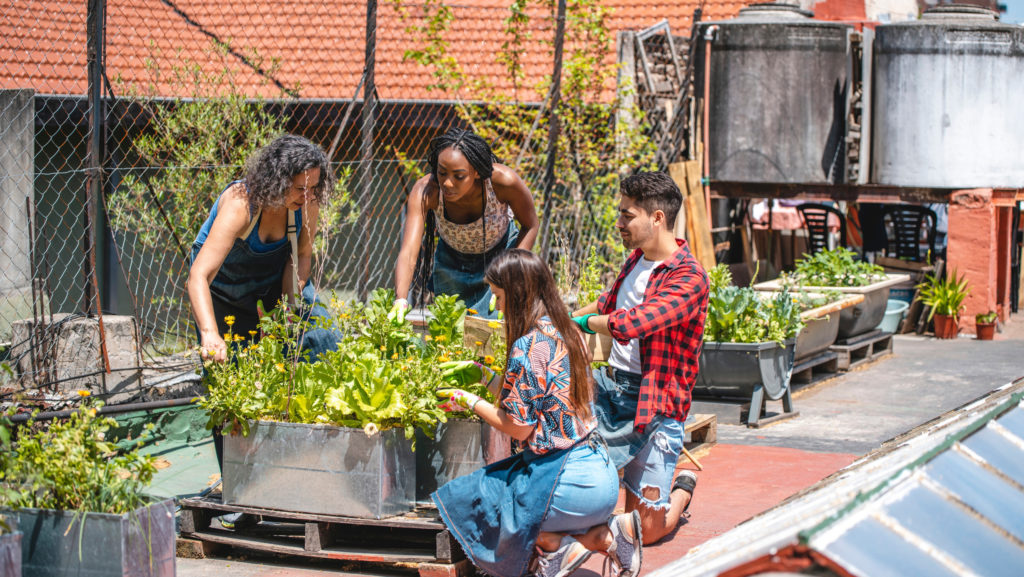
Working together in the garden allows individuals to contribute their unique skills and knowledge. Whether it’s sharing gardening techniques, offering helpful advice, or lending a helping hand, the collaborative environment fosters a sense of reciprocity and interdependence. Gardeners learn from each other, build on each other’s ideas, and celebrate shared achievements. This collective effort deepens friendships and creates a supportive network that extends beyond the garden itself.
Opportunities for Conversation and Connection
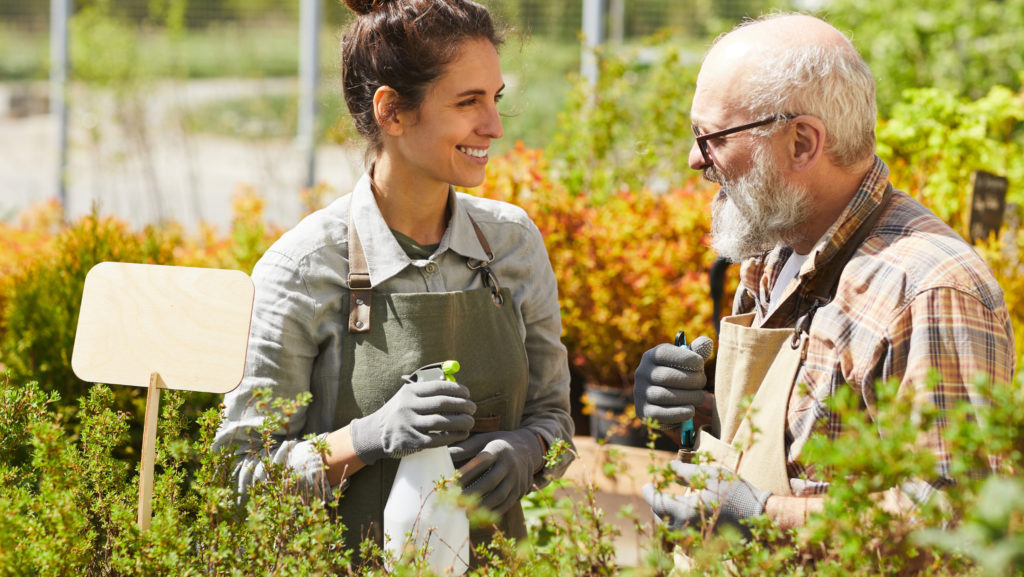
Gardening provides a conducive environment for conversation and connection. As friends or community members gather in the garden, they have ample time and space for meaningful interactions. The act of gardening itself, whether it’s weeding, planting, or harvesting, allows for relaxed and unhurried conversations.
Engaging in gardening tasks together opens up opportunities to share stories, exchange ideas, and discuss a wide range of topics. Conversations can revolve around plants, gardening techniques, or even personal matters unrelated to gardening. The garden serves as a backdrop for meaningful connections to take root and flourish.
Through conversations and connections in the garden, friendships deepen and grow. The shared experiences, collaboration, and unhurried conversations foster a sense of trust, understanding, and emotional support. As friendships take root in the garden, they extend beyond the green space and become an integral part of individuals’ lives.
Breaking Down Barriers: Gardening for Inclusive Social Connection
Gardening has a remarkable ability to transcend social, cultural, and generational differences, creating an inclusive environment that welcomes and embraces diversity. It is a unifying force that brings people together, fostering connections and bridging divides.
Transcending Social and Cultural Differences
In the garden, social and cultural differences become less pronounced as people connect through their shared love for plants and gardening. Regardless of background, ethnicity, or social status, gardening provides a common ground where individuals can come together and learn from one another.
The beauty of gardening lies in its ability to spark curiosity and appreciation for different plant species, gardening techniques, and cultural practices related to gardening. Gardeners can exchange knowledge about unique plants, traditional gardening methods, and cultural gardening practices, fostering a sense of mutual respect and understanding.
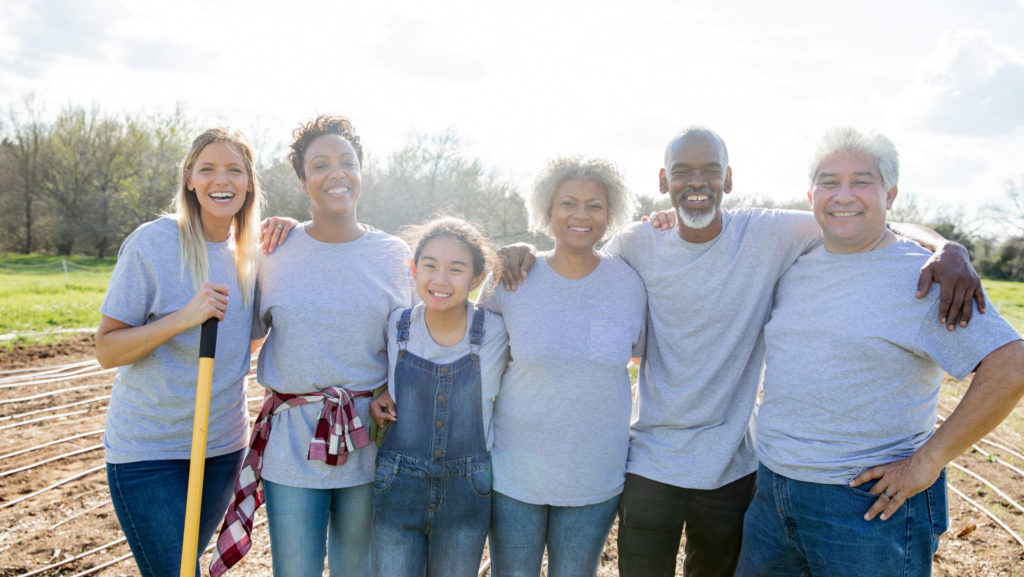
Accessibility and Adaptability
Gardening is a versatile activity that can be adapted to accommodate individuals with various physical abilities and disabilities. With accessible garden designs, adaptive tools, and raised beds, gardening becomes an inclusive pursuit that welcomes people of all abilities.
Accessible gardens are designed to remove physical barriers, allowing individuals with limited mobility or disabilities to actively participate in gardening activities. By providing ramps, wide pathways, and raised garden beds at an appropriate height, these gardens ensure that everyone can engage in gardening, fostering social connections among diverse groups of people.

Intergenerational Connections
Gardening has a unique ability to bridge generational gaps and create intergenerational connections. It offers a shared experience that can be enjoyed by people of all ages, fostering connections between different generations.
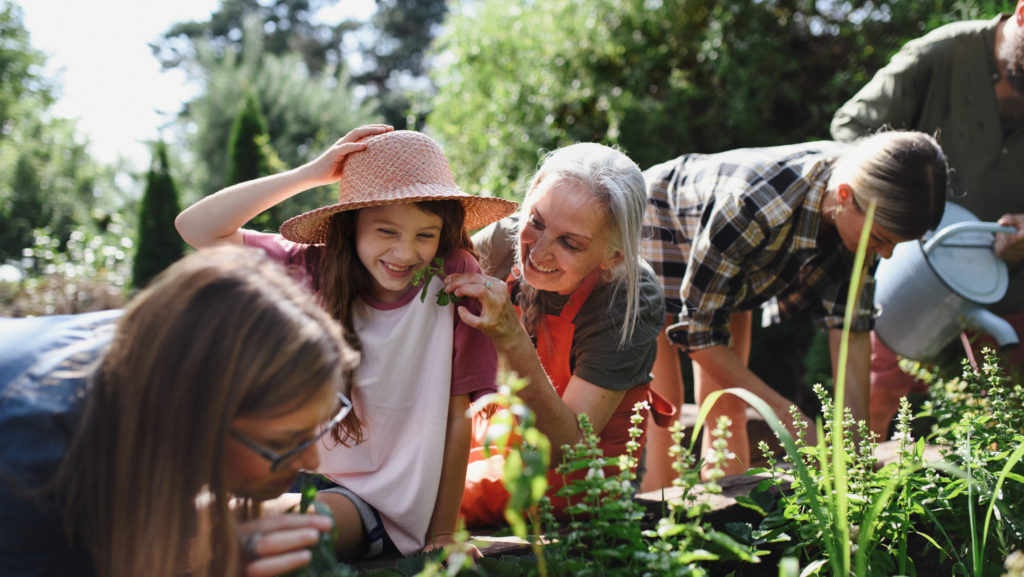
Older generations can pass down their gardening wisdom and traditions to younger individuals, while younger generations can bring fresh perspectives and technological advancements to the gardening practice. The intergenerational exchange of knowledge, skills, and experiences in the garden cultivates a sense of connection and mutual learning.
Gardening serves as a bridge that connects people across various divides, fostering inclusivity, understanding, and empathy. It provides a space where diverse individuals can come together, celebrate differences, and build lasting friendships.
Gardens as Gathering Spaces: Hosting Social Events
Gardens are not only nurturing spaces for plants but also serve as idyllic settings for hosting social events and gatherings. These green sanctuaries provide a unique and captivating backdrop for creating unforgettable memories and strengthening social connections.
Welcoming Spaces for Social Events
Gardens offer a serene and inviting ambiance that sets the stage for hosting a variety of social events. From intimate gatherings to larger celebrations, the natural beauty and tranquility of gardens create an enchanting atmosphere that captivates guests.
Garden parties, for instance, provide an opportunity to bring friends, family, and neighbors together in a picturesque outdoor setting. Whether it’s a birthday celebration, a bridal shower, or a simple get-together, garden parties create a relaxed and joyful atmosphere where connections can be fostered and cherished.
Benefits of Hosting Social Events in Gardens
Hosting social events in gardens offers numerous benefits beyond the enchanting surroundings. Outdoor socialization in natural settings has been found to have positive effects on overall well-being. It allows people to reconnect with nature, breathe fresh air, and enjoy the therapeutic benefits of being surrounded by greenery.

Garden events also encourage mingling and conversations. The relaxed atmosphere, away from the distractions of indoor spaces, creates an environment conducive to meaningful interactions. Guests can explore the garden, admire the plantings, and engage in conversations that deepen connections and forge new friendships.
Fostering Connection and Shared Experiences
Garden events provide a platform for shared experiences that enhance social connections. When people gather in a garden, they share not only the beauty of the surroundings but also the memories and moments created together.
By participating in garden activities during these events—such as planting seeds, harvesting produce, or even DIY garden projects—guests can engage in collaborative efforts, bond over shared tasks, and create lasting memories. These shared experiences in the garden deepen connections and lay the foundation for continued social interactions beyond the event.
Hosting social events in gardens allows for the integration of nature’s beauty, human connections, and joyful celebrations. By utilizing the enchanting backdrop of a garden, individuals can create memorable experiences that foster social connections, celebrate special moments, and strengthen friendships.
The Therapeutic Power of Gardening: Enhancing Social Connections
Gardening offers more than just aesthetic and social benefits—it is also a powerful therapeutic activity that can enhance social connections and overall well-being. Engaging with plants and nature has been found to have profound effects on mental health, stress reduction, and personal growth, all of which contribute to fostering deeper social connections.
Therapeutic Benefits for Mental Health
Numerous studies have shown that gardening has a positive impact on mental health. The act of nurturing plants, being surrounded by nature, and engaging in the physical activity of gardening can help reduce stress, anxiety, and symptoms of depression.
Spending time in the garden promotes relaxation and mindfulness. The rhythmic nature of gardening tasks, such as digging, weeding, or planting, can have a soothing effect on the mind, providing a respite from the stresses of daily life. Gardening also allows individuals to disconnect from digital distractions and connect with the present moment, promoting mental clarity and well-being.
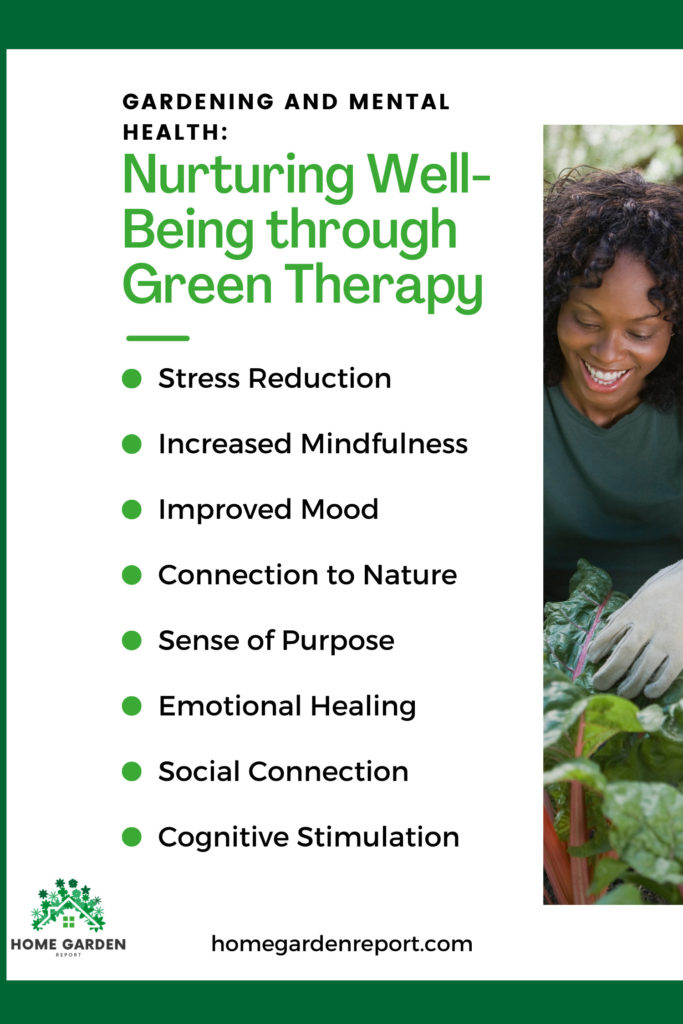
Shared Sense of Purpose and Accomplishment
Gardening provides a shared sense of purpose and accomplishment, which can enhance social connections. As friends or community members work together in the garden, they witness the growth and transformation of their efforts. The shared experience of nurturing plants, overcoming challenges, and witnessing the fruits of their labor instills a sense of pride and achievement.
These shared experiences create bonds among gardeners as they celebrate milestones, share in the joy of successful harvests, and support each other through setbacks. The sense of purpose and accomplishment in the garden cultivates a positive and uplifting atmosphere that strengthens social connections.
Gardening as a Form of Therapy
Beyond its general therapeutic benefits, gardening can also be specifically utilized as a form of therapy to enhance social connections. Horticultural therapy programs are designed to harness the healing power of plants and gardening to support individuals’ physical, emotional, and social well-being.
Group horticultural therapy sessions create a nurturing environment where participants can engage in gardening activities, share their experiences, and support one another. These sessions promote communication, self-expression, and the development of coping skills. Through gardening, individuals in therapy can form connections with others who may be facing similar challenges, fostering a sense of belonging and understanding.
The therapeutic aspect of gardening provides an additional layer to social connections, as individuals bond not only through shared interests but also through shared healing and personal growth.
Nurturing Friendships Beyond the Garden: Connecting Outside the Green Space
Gardening has a remarkable ability to nurture friendships that extend beyond the garden itself. The connections formed through shared gardening experiences often transcend the boundaries of the green space, leading to meaningful connections and enriching various aspects of life.
Deeper Connections Outside the Gardening Context
The friendships forged through gardening often go beyond the shared interest in plants and gardening techniques. As individuals spend time together in the garden, they naturally discover shared values, passions, and hobbies that extend into other areas of life. This opens the door to deeper connections outside the context of gardening.
Gardeners often find themselves engaging in conversations and activities that revolve around a wide range of subjects beyond gardening. They may discover shared interests in art, cooking, environmental conservation, or even social activism. These shared passions create opportunities to further connect, collaborate, and support one another, solidifying friendships that extend beyond the green space.
Engaging in Activities Beyond Gardening

The friendships nurtured through gardening can be strengthened by engaging in activities beyond the realm of gardening. Friends who share a love for plants can explore other shared interests, such as attending botanical exhibitions, visiting nature preserves, or even taking up new hobbies together.
By expanding the scope of shared activities, friends can deepen their bonds and create a more diverse range of experiences. This adds richness and depth to the friendship, enhancing social connections and creating a more well-rounded connection that extends beyond gardening.
Maintaining and Nurturing Friendships Over Time
Like any friendship, those nurtured through gardening require care and effort to flourish. It’s essential to maintain regular communication, plan garden-related activities, or simply set aside time to catch up and share experiences.
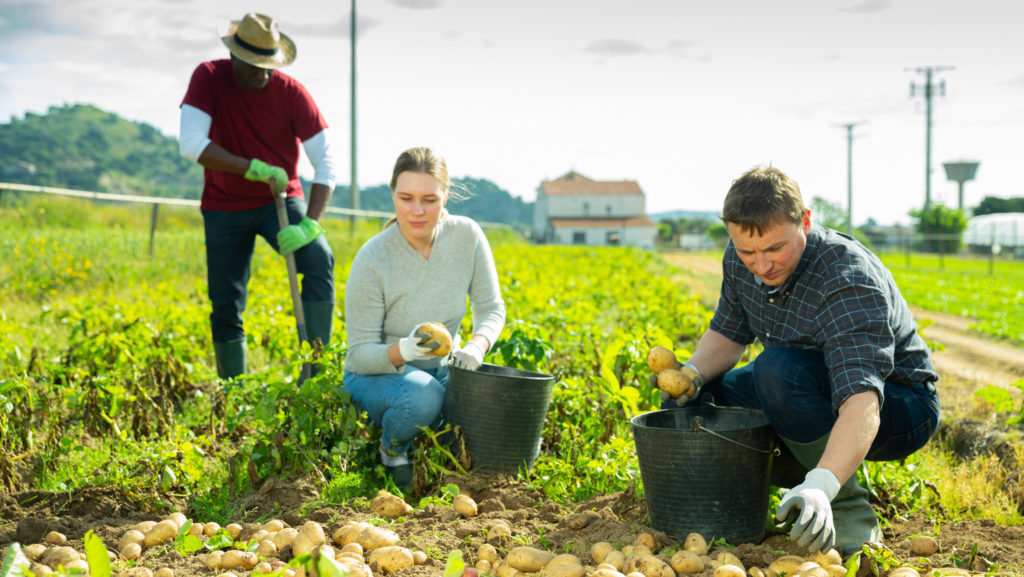
Gardening provides a natural rhythm and cycle that can serve as a framework for maintaining friendships. Friends can come together during planting seasons, help each other with garden maintenance, or celebrate the harvest together. By integrating these shared activities into their friendship, individuals can deepen their connection and create lasting bonds that endure over time.
By nurturing friendships beyond the garden, individuals create a support network, a source of inspiration, and a community of like-minded individuals. These connections enhance not only the joy and satisfaction derived from gardening but also various aspects of life, fostering personal growth and well-being.
Conclusion
Gardening has proven itself to be much more than a simple hobby—it is a powerful catalyst for social connection and friendship. In a world where social isolation and disconnection have become all too common, the act of nurturing plants and tending to green spaces has the extraordinary ability to bring people together, fostering deep and meaningful connections.
Throughout this blog post, we have explored the benefits of gardening for social connection. We have seen how gardening serves as a social activity, cultivating shared experiences, collaboration, and conversations. We have discussed how gardening breaks down barriers, transcending social, cultural, and generational differences, creating inclusive spaces for connection. We have also delved into the therapeutic power of gardening, enhancing well-being and strengthening social bonds.
Gardens go beyond being nurturing spaces for plants—they become gathering places for hosting social events, creating joyful memories and forging deeper connections. Furthermore, the friendships nurtured through gardening extend beyond the green space, enriching various aspects of life, and providing support, inspiration, and a sense of belonging.
So, if you are seeking meaningful connections, consider embracing gardening as a means to enhance your social well-being. Join a community garden, participate in gardening clubs or online communities, or simply invite friends to share in the joy of gardening together. Embrace the collaborative spirit, the shared experiences, and the therapeutic benefits that gardening offers.
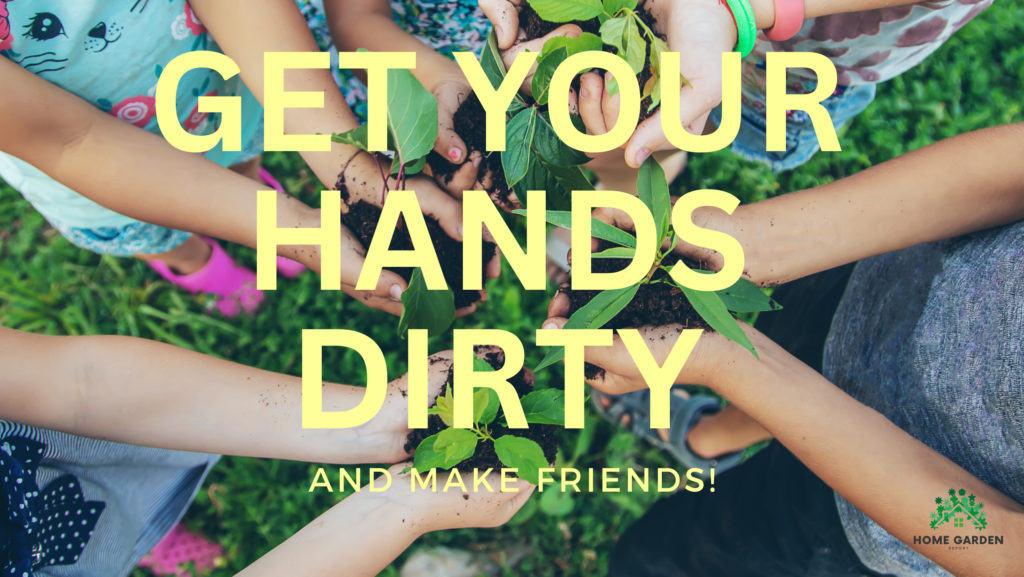
Let gardening be the bridge that brings people together, fostering connections that flourish and grow. As you embark on this green journey, may you find not only the beauty of blooming plants but also the beauty of blooming friendships that enrich your life.


